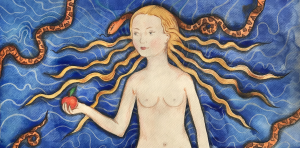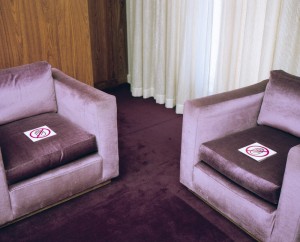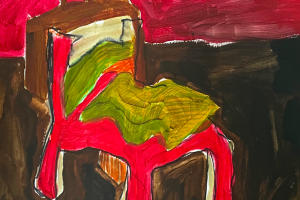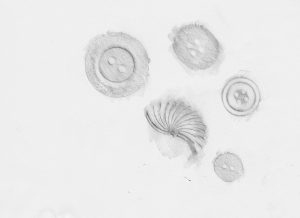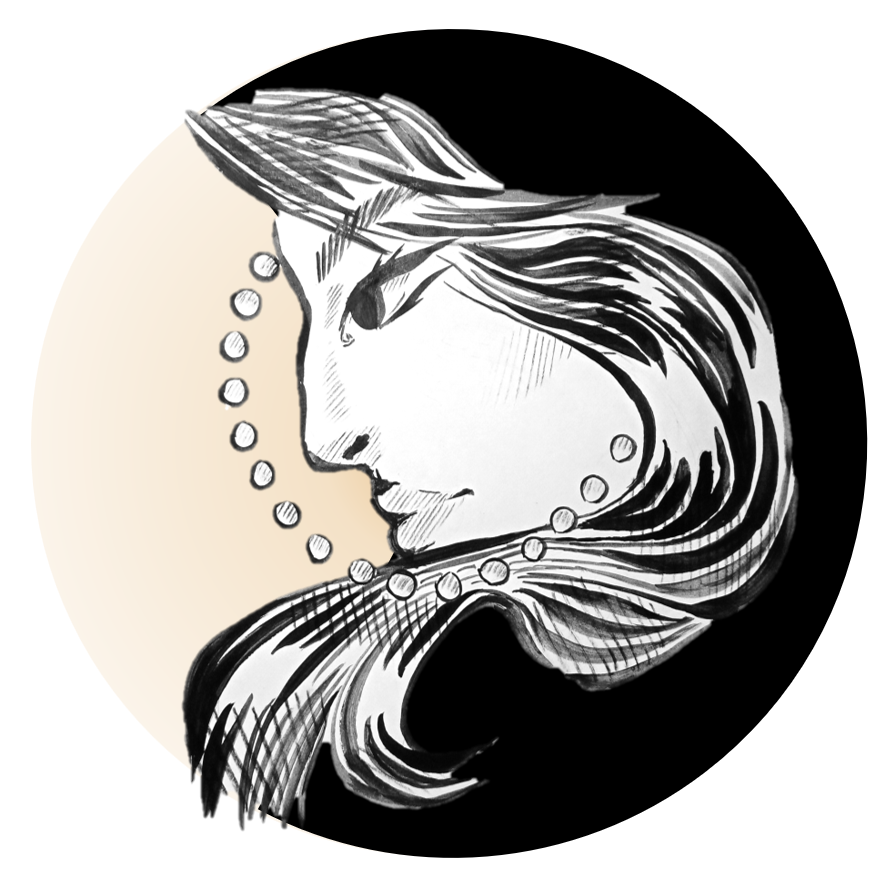
Sconfinata
by Sophie Magalhaes | January 4, 2023
When I was fourteen, I found a woman in my house. She was father’s secretary, with luminous black hair and a string of pearls around her neck. The tender remembrance of a distant beauty, coupled with an unwavering faith in the grandeur of life, she consumed the better part of my consciousness the moment I first saw her.
On the day I met her she sat at the ebony table in my house, typing away at my father’s typewriter. Mina’s Città Vuota resounded from the record player next to her. She whipped her head around when she heard my footsteps.
Tu chi sei?[1]I asked.
Scusa, ragazzina. Sei perduta?[2]
The Neapolitan accent struck a new chord – her slurred words, cut off vowels – who, if anyone in Florence, spoke like that?
Cosa fai a casa mia?[3]
She lifted the needle of the record player and stood to face me.
Scrivo.[4]
Sei scrittrice?[5]
No. Sono segretaria.[6]
Allora perché scrivi?[7]
Perché voglio.[8]
My father frequently had colleagues over, but never had there been a woman.
Lavori per mio padre?[9]
Tu sei la figlia di Guido?[10]
Sì.
Guido non mi ha detto che aveva una figlia.[11]
What a thing to say out loud. I asked if she knew my father well.
Perchè mi fai questa domanda?[12]
The atmosphere grew tense. I offered her a coffee.
Fai del caffè?[13]
Sì.
Faccia pure. Grazie.[14]
I brought her an espresso. She mumbled a ‘thank you’ and sipped in silence whilst scanning the pages next to her. I tried to glimpse the title. She was too quick, turning the pages over.
Su cosa stai scrivendo?[15]
She looked up from the typewriter slightly menacingly.
Sulla donna Petrarca. Il simbolo della tentazione.[16]
Tentazione?
Tentazione.
She slicked her dark hair back with her hands, adjusted her pearl necklace, and began to scribble illegible marks in the margins of her freshly typed draft. Her glassy black eyes squinted as they scanned the same section, again and again. A secretary at the university, sitting at the dining table of the most esteemed academic in Florence, using his typewriter, draining the ink from his pen, and wasting his paper. I persisted – politely.
Non ho chiesto il tuo nome.[17]
She glanced up again and clicked the lid back onto the pen. Her thumb was stained blue.
Nadia Nespola. Piacere.[18]
Piacere. Elisa.
We shook hands. She pursed her lips and looked at me more intently.
Quanti anni hai?[19]
An unexpected question.
Quattordici.[20]
Nadia leaned back in the chair. It squeaked.
Allora sei al liceo?[21]
I wanted to impress her. I responded with conviction
Sì. Liceo Classico.[22]
Quindi sei una classicista come suo padre?[23]
I shrugged, unsure of what to say. She pressed me.
Ti piace il Latino?[24]
A volte. Quando non è grammatica.[25]
E Greco?[26]
Lo stesso.[27]
Ashamed of my lack of words, I offered to give her some privacy to continue writing. She declined.
Non importa. Me ne vado presto.[28]
I sat on the sofa, watching her scribble unfalteringly. There was a zip as she pulled another sheet of paper from the typewriter and added it to the rest of the pile. She stood up and slotted it neatly into her briefcase. I went to open the door.
Buona fortuna con la scrittura.[29]
Grazie, Elisa.
As she stepped over the threshold and into the corridor, I blurted:
Ci vediamo presto?[30]
She turned back.
Sì. Ci vediamo presto. Arrivederci.[31]
Ciao. ∎
[1] Who are you?
[2] Excuse me, little girl. Are you lost?
[3] What are you doing at my house?
[4] I write.
[5] Are you a writer?
[6] No. I’m a secretary.
[7] Then why do you write?
[8] Because I want to.
[9] Do you work for my father?
[10] You’re Guido’s daughter?
[11] Guido didn’t tell me he had a daughter.
[12] Why do you ask me that question?
[13] You make coffee?
[14] Go ahead. Thank you.
[15] What are you writing about?
[16] About the Petrarchan woman. The symbol of temptation.
[17] I haven’t asked your name.
[18] Pleasure.
[19] How old are you?
[20] Fourteen.
[21] Then you’re in high school?
[22] Yes. Classical high school.
[23] Then you’re a classicist like your father?
[24] Do you like Latin?
[25] Sometimes. When it isn’t grammar.
[26] And Greek?
[27] The same.
[28] It’s no matter. I’m leaving soon.
[29] Good luck with the writing.
[30] We’ll see each other soon?
[31] Yes. We’ll see each other soon. Goodbye.
Words by Sophie Magalhaes. Art by Louis Rush.
